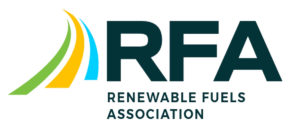 Environmental Protection Agency (EPA) Administrator Andrew Wheeler and USDA Secretary of Agriculture Sonny Perdue issued joint statements on an agreement promoting biofuels under the Renewable Fuel Standard.
Environmental Protection Agency (EPA) Administrator Andrew Wheeler and USDA Secretary of Agriculture Sonny Perdue issued joint statements on an agreement promoting biofuels under the Renewable Fuel Standard.
“President Trump’s leadership has led to an agreement that continues to promote domestic ethanol and biodiesel production, supporting our Nation’s farmers and providing greater energy security,” said EPA Administrator Andrew Wheeler. “Today’s agreement is the latest in a series of steps we have taken to expand domestic energy production and improve the RFS program that will result in sustained biofuel production to help American farmers.”
 “President Trump has once again demonstrated that he is a champion for our nation’s farmers and rural America,” said USDA Secretary Sonny Perdue. “The President recognizes that American farmers are the most productive in the world, and he has found a way to pursue policy that promotes economic growth and supports our producers. Building on the success of the year-round E15 rule, this forward-looking agreement makes improvements to the RFS program that will better harness the production of our farmers and ensure America remains energy dominant.”
“President Trump has once again demonstrated that he is a champion for our nation’s farmers and rural America,” said USDA Secretary Sonny Perdue. “The President recognizes that American farmers are the most productive in the world, and he has found a way to pursue policy that promotes economic growth and supports our producers. Building on the success of the year-round E15 rule, this forward-looking agreement makes improvements to the RFS program that will better harness the production of our farmers and ensure America remains energy dominant.”
The announcement today outlines the following actions to be taken by EPA and USDA:
EPA will propose and request public comment on expanding biofuel requirements beginning in 2020.
EPA will seek comment on actions to ensure that more than 15 billion gallons of conventional ethanol be blended into the nation’s fuel supply beginning in 2020, and that the volume obligation for biomass-based diesel is met. This will include accounting for relief expected to be provided for small refineries.
EPA intends to take final action on this front later this year.
In addition, EPA will initiate a rulemaking process to streamline labeling and remove other barriers to the sale of E15 and continue to evaluate options for RIN market transparency and reform. USDA will seek opportunities through the budget process to consider infrastructure projects to facilitate higher biofuel blends. And finally, the Administration will continue to work to address ethanol and biodiesel trade issues.
Biofuel and farmer organizations are thanking the administration for this action which they say would put the RFS back on track.
 Growth Energy has announced the election of Dan Sanders as new chairman of the board of directors, succeeding POET CEO Jeff Broin, who held the position since the association was formed in 2008.
Growth Energy has announced the election of Dan Sanders as new chairman of the board of directors, succeeding POET CEO Jeff Broin, who held the position since the association was formed in 2008.












